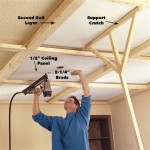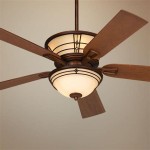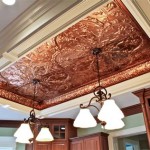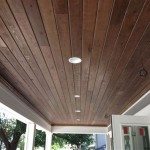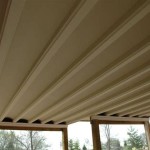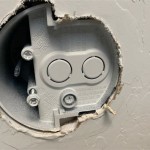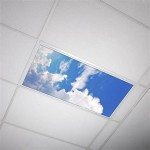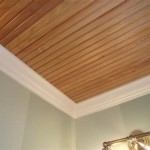Best Noise Insulation for Basement Ceilings
Basements are often susceptible to noise pollution from above, whether it's foot traffic, conversations, or even the sound of appliances running. Effective noise insulation for basement ceilings can transform a noisy space into a peaceful haven. This article will explore the best noise insulation options available, providing insights into their effectiveness and installation considerations.
Understanding Sound Transmission
Before delving into insulation materials, it's crucial to understand how sound travels. Sound waves propagate through the air, vibrating surfaces they encounter. When these vibrations reach the ceiling, they can be transferred to the basement below, creating noise. To minimize this transmission, noise insulation strategies aim to absorb, block, or redirect these sound waves.
There are two primary types of noise insulation:
- Sound Absorption: This involves using materials that absorb sound waves, preventing them from reflecting back into the space. Examples include acoustic panels, fiberglass insulation, and foam.
- Sound Blocking: This focuses on creating a barrier that prevents sound waves from passing through. Dense materials like drywall, mass-loaded vinyl, and concrete are effective sound blockers.
Best Noise Insulation Materials for Basement Ceilings
Here are some of the most effective noise insulation materials for basement ceilings:
1. Fiberglass Insulation
Fiberglass insulation is a popular and cost-effective option for sound absorption. It's available in batts or rolls and can be easily installed between joists. Fiberglass insulation helps to reduce noise transmission by absorbing sound waves, preventing them from reaching the basement ceiling. However, it's essential to wear protective gear when handling fiberglass insulation, as it can be irritating to the skin and respiratory system.
2. Acoustic Panels
Acoustic panels are specifically designed to absorb sound waves, reducing echoes and reverberation. They are typically made of foam, fabric, or mineral wool and are available in various shapes, sizes, and colors. Acoustic panels can be easily attached to the ceiling for a decorative and functional solution to noise reduction. They are especially effective in reducing the impact of high-frequency sounds, such as speech and music.
3. Mass-Loaded Vinyl
Mass-loaded vinyl is a dense material that effectively blocks sound transmission. It's often used in conjunction with other insulation materials, such as fiberglass or acoustic panels, to create a multi-layered sound barrier. Mass-loaded vinyl is typically applied to the underside of the ceiling joists, creating a barrier that prevents sound waves from passing through. The added weight and density of the vinyl significantly attenuate sound energy.
4. Green Glue Noise Dampening Compound
Green Glue is a specialized, highly effective noise-dampening compound. It's often used in conjunction with drywall to create a robust sound barrier. When applied to the joists and drywall, Green Glue helps to reduce the vibrations that transmit sound. It effectively isolates the basement from upper-floor noise, making it a preferred choice for high-noise reduction projects.
5. Resilient Channels
Resilient channels are metal strips that are installed between the ceiling joists and the drywall. They create an air gap between the ceiling and the drywall, decoupling the two layers and reducing sound transmission. The air gap acts as a buffer, absorbing sound energy and preventing it from being transferred to the basement ceiling. Resilient channels are particularly effective in mitigating impact noise, such as footsteps or dropped objects.
Installation Considerations
The effectiveness of noise insulation depends not only on the materials used, but also on the quality of installation. These are some crucial installation considerations to achieve optimal noise reduction:
- Seal All Gaps: Gaps and cracks in the ceiling can allow sound waves to pass through, compromising the effectiveness of insulation. Ensure all gaps are sealed with caulk, acoustic sealant, or other appropriate materials.
- Continuous Insulation: For maximum noise reduction, it's important to ensure that the insulation is continuous throughout the ceiling. There should be no gaps or breaks in the insulation material.
- Properly Secure Materials: Secure all insulation materials and sound barriers firmly to the ceiling joists or structural elements. Loose materials can vibrate and contribute to sound transmission.
By carefully selecting the right noise insulation materials and installing them correctly, you can dramatically reduce noise pollution in your basement, creating a more peaceful and enjoyable space.

Soundproofing Ceilings How To Soundproof A Ceiling

Nova Basement Remodeling Soundproofing In

What To Know About Soundproofing A Basement Ceiling

How To Soundproof A Basement Ceiling

A Guide On Basement Ceiling Insulation

Soundproofing A Ceiling Sound Proofing Home Studio Room Acoustics

Bungled Basement Soundproofing The Expert

Soundproofing Basement Insulation Services In Denver Co

Should I Insulate My Basement Ceiling And Walls Aire Serv

Soundproofing A Home Work Technical Details Two Teaching S
Related Posts

